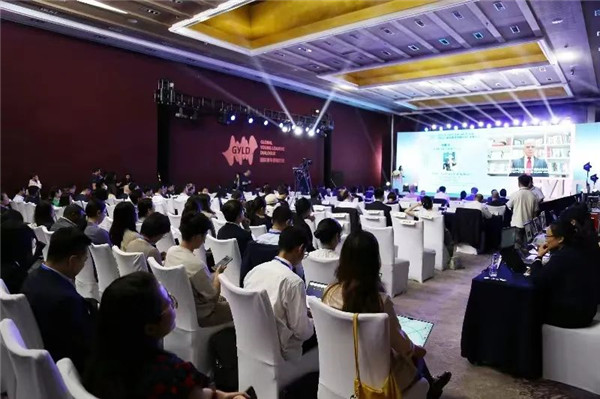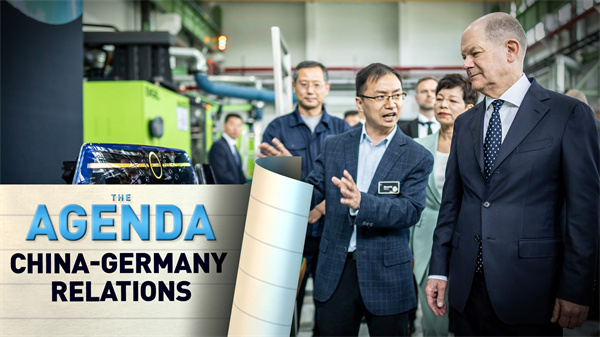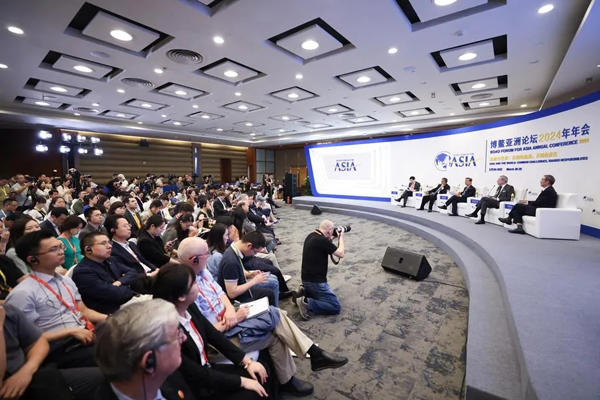BRICS ‘new ideas’ expected at summit
September 01 , 2017The leaders of five leading emerging nations will descend on Xiamen, the subtropical island off China’s east coast, to discuss the future direction of one of the world’s leading country groupings.
It will be the ninth summit of BRICS, whose members, apart from China, are Brazil, Russia, India and South Africa, and will be chaired by President Xi Jinping.
The organization, which was formed in 2006, accounts for nearly a quarter (23 percent) of the world’s output-up from just 12 percent a decade ago-and 50 percent of global growth.
After India withdrew all its personnel and equipment from China’s Donglang area on Aug 28 after a 10-week intrusion into the border territory, it was confirmed that India’s Prime Minister Narendra Modi would attend. There were concerns the standoff might detract attention from the summit.
Chinese Foreign Minister Wang Yi told a news briefing on Aug 30 that it was normal for two big neighbors to have differences.
“What’s important is that we put these problems in the appropriate place, and appropriately handle and control them in the spirit of mutual respect based on the consensus of both countries’ leaders,” he said.
“There is huge potential for cooperation between China and India,” he added.
With increasing protectionist sentiment coming out of the United States, there is set to be an emphasis on economic cooperation at the summit-which is being held between Sept 3 and 5-with a number of the BRICS members being major beneficiaries of globalization.
Many also will be looking for indications as to where BRICS goes next as an organization.
Its most tangible achievements so far have been the setting up of the New Development Bank-the so-called BRICS bank-based in Shanghai, and the establishment of the CRA, or the Contingent Reserve Arrangement, a financial mechanism that protects members against fluctuations in their currencies.
Sanusha Naidu, Cape Town-based senior research fellow at the Institute for Global Dialogue, a South Africa think tank, says BRICS needs new projects and initiatives to give it new direction.
“There is a lot of speculation as to what is going to come after the bank and the CRA, and whether we are going to see similar types of initiatives that are going to complement them,” she says.
Kerry Brown, professor of Chinese studies and director of the Lau Institute at King’s College London, agrees the organization needs new impetus.
“BRICS was a popular idea some years ago, but it now needs to be revivified and given a new shape and mission. So Xiamen is the best option for doing this, because it will at least give it some profile and then also supply some new ideas,” he says.
At the last summit in Goa, India, in October last year, issues such as climate change, sustainable development goals, counterterrorism and global governance were high on the agenda.
At Xiamen, a 14-km-long island with a population of 4 million, the overarching theme of the summit is “BRICS: Stronger Partnership for a Brighter Future”.
Again, global governance that more reflects the interests of emerging market nations will be prioritized as well as the strengthening of the economic partnership between the member nations and reform of the global financial architecture, which in the BRICS members’ view remains too Washington-centric.
The summit will also champion globalization which the members believe favors emerging market nations, and oppose moves toward protectionism.
Wang Huiyao, founder and president of The Center for China and Globalization (CCG), the leading Beijing-based independent think tank, believes the summit can be very effective in delivering a clear message in this area.
“It can be very influential in proposing a very definite pro-globalization, pro-free trade agenda. It is actually quite a considerable bloc accounting for a large proportion of world trade,” he says.
“It is in a better position to do this than the G20, which is too unwieldy an organization to do this.”
Fredrik Erixon, director of the European Centre for International Political Economy, a Brussels-based think tank, believes BRICS has the economic clout to resist protectionism.
“BRICS countries can do a lot to stem the tide of protectionism. Open trade is particularly beneficial for countries that open themselves up, and BRICS countries should accelerate reforms to open up their economies for more trade and competition because this will benefit their economies and, ultimately, their citizens.”
Rukudzo Murapa, director of Johannesburg-based Khulisa Management Services, which evaluates aid projects, says BRICS should be about challenging the existing global order.
“BRICS is a rebellious organization, rebelling against the status quo and a developed formula dominated by the Bretton Woods institutions and the European Union. BRICS has to come up with a new approach to deal with slow growth and the commodities (slump),” he says.
The summit is the first since China held its Belt and Road Forum for International Cooperation in Beijing in May.
Some believe that China now is more focused on its own major initiative and also on the Asian Infrastructure Investment Bank, which was launched at the beginning of last year.
But He Weiwen, a former commercial counselor in the Chinese consulates general in San Francisco and New York, insists there is no need for any clash between the two as far as China is concerned.
“BRICS, on the contrary, could be a good pathway for the goals of the Belt and Road Initiative to be achieved. The New Development Bank, for instance, will complement the AIIB for the initiative because BRICS covers more than just Asia,” he says.
Brown at the Lau Institute believes BRICS as a grouping remains useful to China.
“China has been creating as much infrastructure as possible. Belt and Road is one strand of this, but BRICS complements this because it embraces partners not strictly along the Belt and Road rubric-South Africa and Brazil, for instance,” he says.
Rana Mitter, director of the Dickson Poon Oxford University China Centre, says close observers of the summit will be looking for clues as to what the future relationship between Belt and Road Initiative and BRICS will be.
“Where BRICS fits in for China is a genuinely interesting question. A lot of people will be looking to see if the BRICS agenda and that of China’s major initiative will coalesce.”
At the seventh meeting of the BRICS trade ministers in Shanghai on Aug 1 and 2, creating an e-commerce platform with cooperation in such areas as payment and logistics was discussed, and this could result in firm proposals at the summit.
“This is something that makes a lot of sense and could lead to growing e-commerce trade between the countries, which will particularly benefit SMEs in particular,” adds Wang, who is also a counselor to the State Council, China’s Cabinet.
One of the issues almost certain to be discussed at the summit will be more openness to other emerging nations.
The leaders of five other emerging and developing countries-Egypt, Guinea, Mexico, Tajikistan and Thailand-will also attend the meeting to create a wider dialogue.
Foreign Minister Wang made clear at the news briefing that he wanted to pursue China’s concept of a BRICS Plus involving a wider “friends circle” of developing countries.
“BRICS is not a closed club,” he said.
Murapa, also a former vice-chancellor of Africa University in Mutare, Zimbabwe, expects the summit to be a moment of reflection for BRICS leaders to assess progress so far before moving forward.
“I expect them to take stock of the distance traveled since the organization was formed to see to what extent the objectives have already been achieved.”
Wei Jianguo, vice-president of the China Center for International and Economic Exchanges, a Beijing-based think tank, says he is confident the Xiamen Summit will herald a “second golden decade” for the bloc.
“In addition to trade and investment, the member states should explore new areas such as the financial, cultural and education sectors to boost cooperation.”






